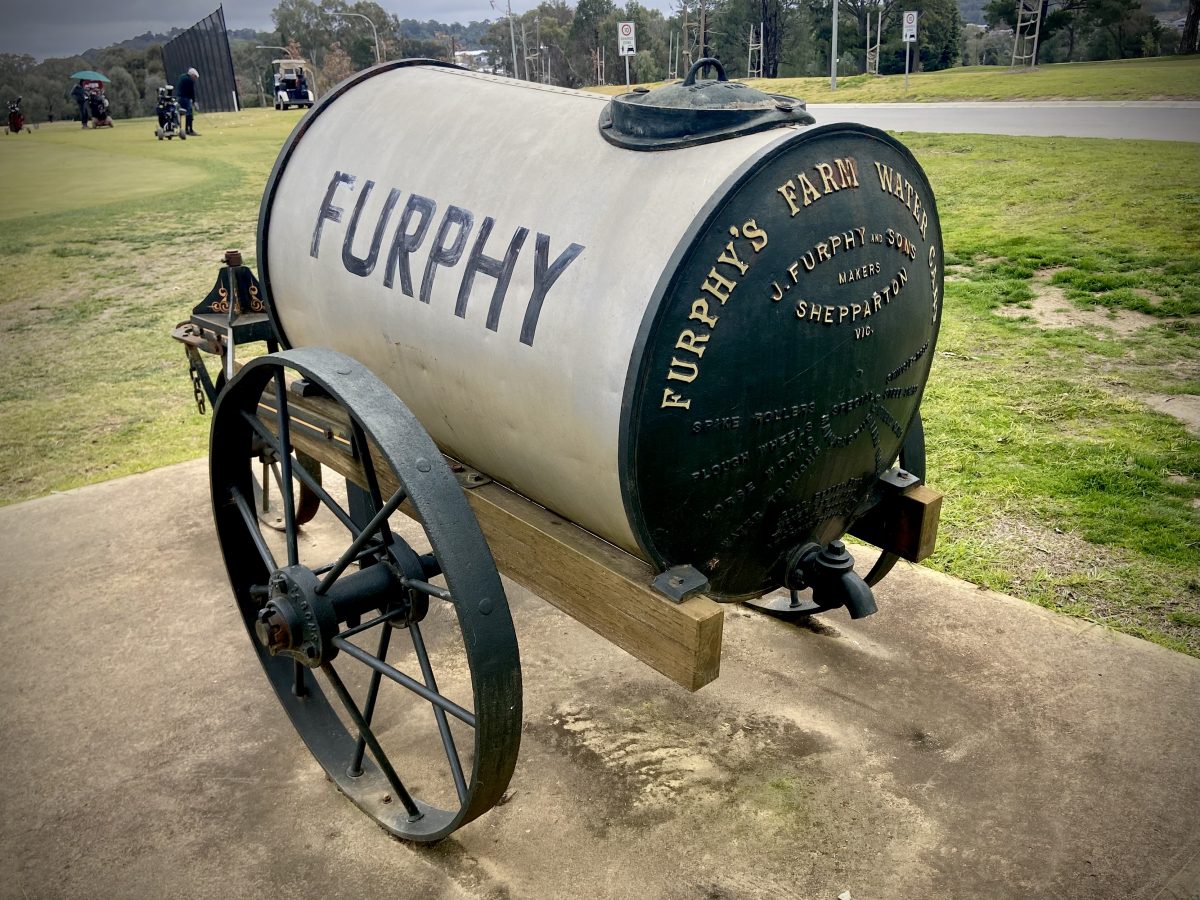
A fully restored Furphy located at the Wagga Wagga Country Club. Photo: Chris Roe.
If you’ve ever visited the Wagga Wagga Country Club on the banks of Lake Albert, you’ll have no doubt passed the beautifully preserved piece of Aussie history sitting out front, behind the putting green.
It’s a fair-dinkum, fully restored Furphy water cart – and that’s the truth!
The plaque on this particular artefact suggests that it was most likely donated to the Country Club by a member for “watering tees, greens and plantings on the course” and was restored to honour “those who used it to benefit the course and to save part of the Club’s history”.
The suggested date of manufacture is between 1895 and 1910 – based on the distinctive “tank ends” and inscriptions that changed over time.
“Good Better Best, Never Let it Rest, Until your Good is Better, And your Better Best” reads the motivational motto of John Furphy’s fabled company.
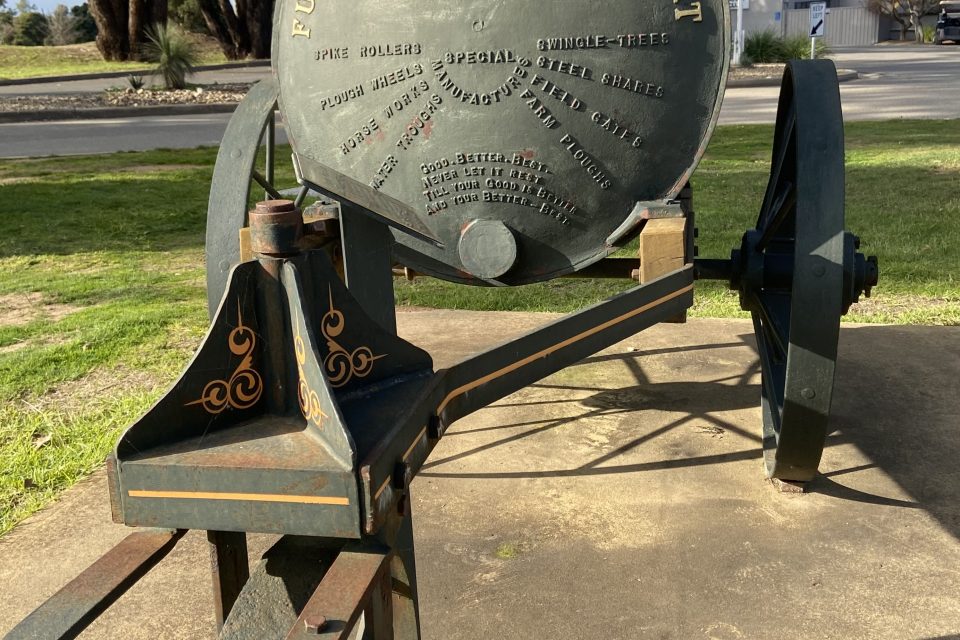
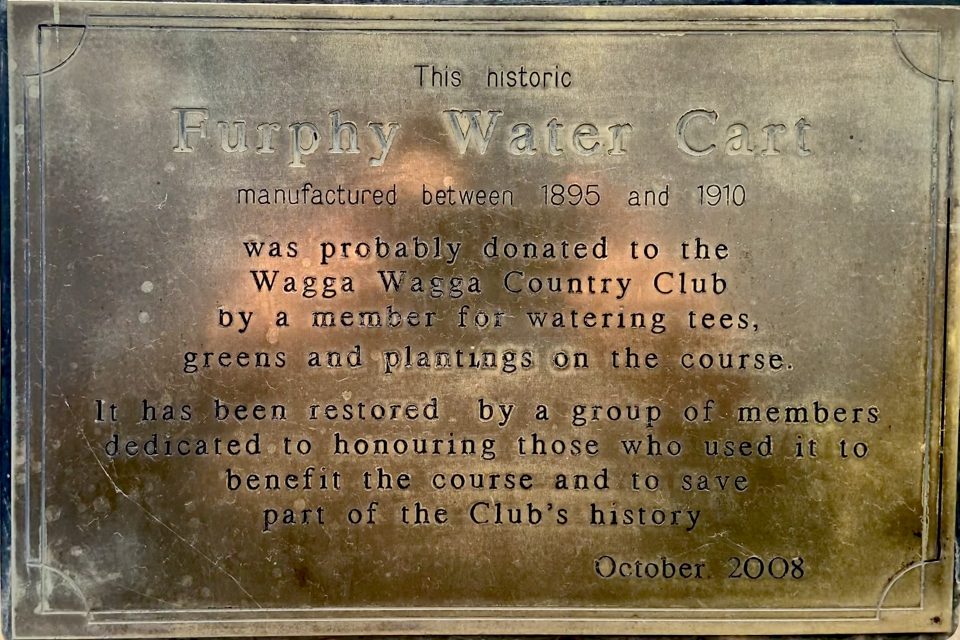
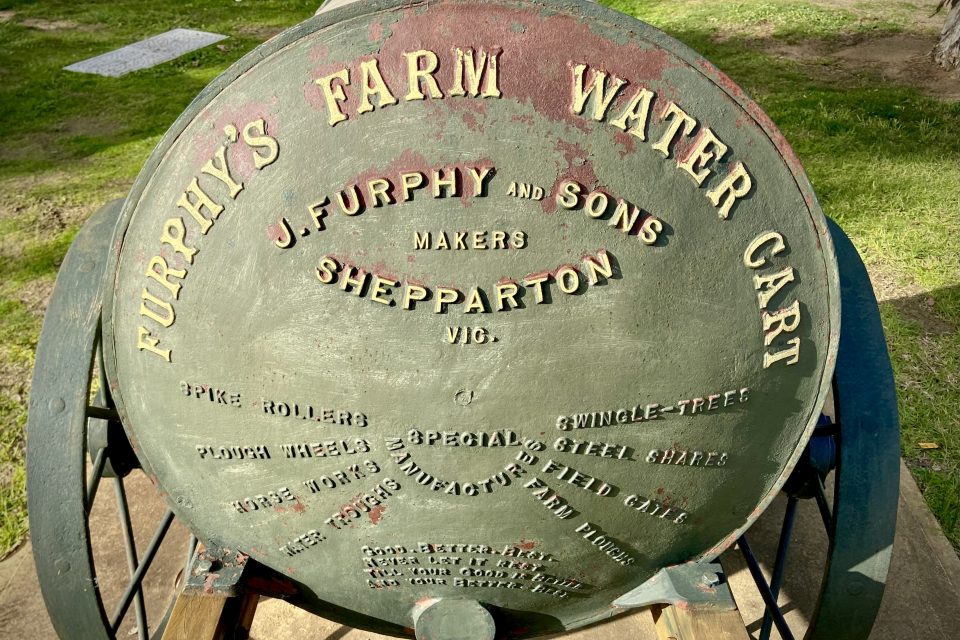

Aussies might better know the term “Furphy” for its other definition – as slang for a rumour or unreliable information.
The Furphy’s Farm Water Cart gained its notorious association with mistruths during World War 1 when these iconic water-tanks-on-wheels trundled about the battle lines bringing both hydration and the latest gossip to the diggers.
“Furphy” soon became synonomous with gossip and exaggeration.
In a curious twist of fate, the previous Aussie colloquialism for a tall story also has a strong association with the Furphy family and the Riverina.

Company Founder John Furphy. Photo: The Furphy Museum.
Joseph Furphy was the brother of tank-maker John and is widely regarded as the ‘father of the Australian novel’.
His classic work Such is Life was published in 1903 and is a tongue-in-cheek account based on his experiences as a bullock driver working across the Riverina in the late 19th century.
The story is written as a humorous memoir under the pseudonym Tom Collins, the “Deputy Assistant Sub-Inspector of the New South Wales Civil Service, ninth class”.
In those days, Tom Collins was bush slang for a peddler of false reports or the lies themselves and was meant to signal the unreliable nature of the text.
While there is no connection between the Tom Collins novel and the use of the slang term Furphy it is a remarkable coincidence that the author’s real surname would take on the meaning of his pseudonym in the decades after his death in 1912.
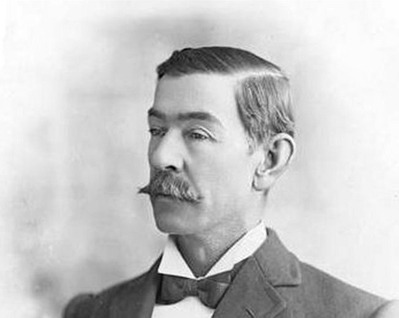
Joseph Furphy is remembered as the ‘father of the Australian novel’. Photo: The Furphy Museum.
Such is Life was not a success during his lifetime but is now regarded as an important and “offensively Australian” piece of literature.
It is also a unique portrait of a forgotten piece of the Riverina’s history when the bullock drays ruled the roads.
Today, there is a literary award named in Joseph Furphy’s honour.
As for John Furphy & Sons, they are still in business 158 years later and the family continues to manufacture water tanks in their Shepparton factory.
Original Article published by Chris Roe on Region Riverina.






